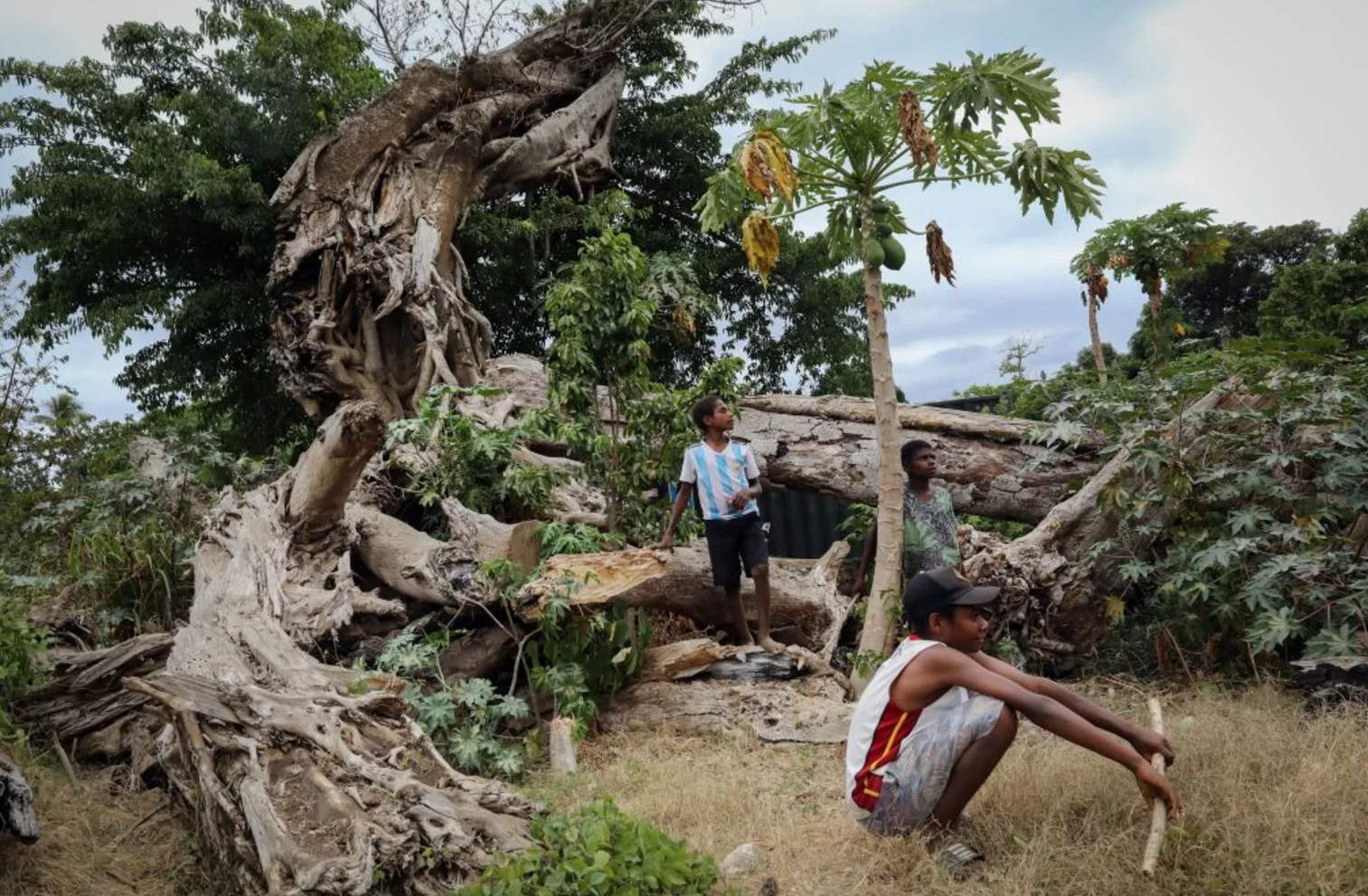
The International Court of Justice (ICJ), based in The Hague, delivered its long-awaited advisory opinion on Wednesday, declaring that governments can be held responsible under international law for failing to adequately respond to climate change—or for historic contributions to it.
While the ruling is not legally binding, legal experts say it marks a watershed moment in global climate justice, offering small and vulnerable nations a powerful new legal tool to pursue reparations for climate-related losses.
Small Island States Lead Global Legal Effort
The case was driven by a coalition of low-lying Pacific island nations—among the most threatened by rising sea levels—who initiated the legal challenge out of mounting frustration at the lack of meaningful global climate action.
"This is a win for our people, for those on the frontlines of climate breakdown," said Siosiua Veikune, a law student from Tonga who was part of the original group that launched the campaign in 2019. "We've been heard. The world's highest court has acknowledged our right to a future."
Flora Vano, a climate activist from Vanuatu—ranked the world's most climate-vulnerable country—called the decision "a recognition of our pain, our resilience, and our right to justice."
Ruling Signals Shift in International Climate Law
The court stated that countries not only have obligations under the 2015 Paris Agreement, but also under broader principles of international law, including the responsibility to prevent environmental harm and protect human rights. This means even nations that are not parties to the Paris Agreement—or those that seek to withdraw—remain legally obligated to protect the global climate system.
Crucially, the ICJ clarified that failure to pursue the most ambitious possible climate targets could constitute a breach of a state's international commitments.
Legal experts say this could open the door to countries filing cases for compensation over climate-related losses, such as infrastructure destruction, displacement, and loss of territory caused by extreme weather and sea-level rise.
Judge Iwasawa Yuji acknowledged the complexities ahead. Determining how much responsibility any one country holds for a particular climate impact will be difficult and will require detailed evidence, likely to be evaluated on a case-by-case basis.
From Legal Opinion to Global Action?
The ICJ's advisory opinions are not enforceable, but they carry significant political and legal weight. Past opinions—such as the ruling on the Chagos Islands—have prompted real-world policy shifts. Legal scholars say national courts around the world may now begin citing the opinion in domestic climate litigation.
"This is a transformative legal moment," said Joie Chowdhury, a senior attorney with the Centre for International Environmental Law. "The court has affirmed that those bearing the brunt of climate devastation have a right to seek remedy—including compensation—from those most responsible."
Already, several developing countries are said to be exploring new legal avenues, citing the ICJ opinion as a basis for climate compensation claims against historically high-emitting nations.
Fossil Fuel Subsidies and Corporate Accountability Also Under Scrutiny
The court went further, stating that governments could also be held accountable for the climate impacts of companies operating within their jurisdictions. Approving new oil and gas projects or subsidizing fossil fuel production may be incompatible with international legal obligations, the judges ruled.
"This decision is going to reshape climate litigation," said barrister Jennifer Robinson of Doughty Street Chambers, who represented Vanuatu and the Marshall Islands. "It's a major victory for the Global South and for all communities seeking justice for decades of climate inaction."
The ruling also signals potential financial implications. A 2022 study published in Nature estimated that climate change caused $2.8 trillion in global economic losses between 2000 and 2019—equivalent to $16 million per hour. The Marshall Islands alone estimates its adaptation costs at $9 billion—an amount it cannot afford without external support.
Legal Questions Remain Over Enforcement
Despite the historic nature of the ruling, significant legal and geopolitical questions remain. For one, countries must agree to ICJ jurisdiction to be sued directly in The Hague. While nations such as the UK are subject to the court, others—including the United States and China—are not.
However, legal experts note that the ICJ opinion can be cited in national courts, creating potential avenues for climate lawsuits in U.S. federal courts or international arbitration forums.
"There's no international police force to enforce these rulings," said climate lawyer Harj Narulla, also of Doughty Street Chambers. "But the ICJ has moral authority—and that can be incredibly powerful."
When asked for comment, a spokesperson for the UK Foreign, Commonwealth and Development Office said it was reviewing the opinion but reaffirmed the UK's commitment to climate action under existing UN frameworks.
Meanwhile, a White House spokesperson reiterated the current U.S. administration's focus on domestic priorities, stating: "President Trump and the administration remain committed to putting American interests first."